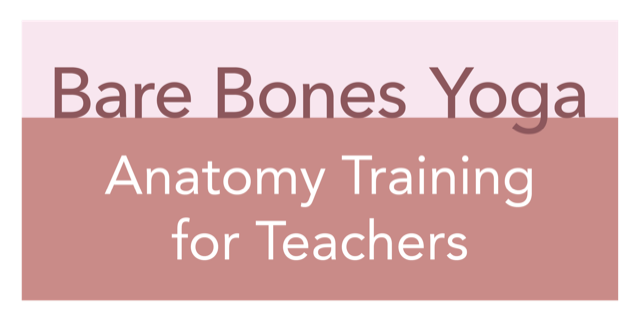Â
Hello, and WELCOME to the Bare Bones Yoga Podcast: Conversations for Yoga Teachers! This is EPISODE 12 and today we’re going to talk about one of my favorite subjects: BRAIN SCIENCE! Now, let me tell you; as yoga teachers, it’s imperative we understand more about the brain then just a passing few bits of information here and there because we’re in the business of teaching movement. And, to understand what’s behind that, there’s more than the mechanical aspects we discuss in the anatomy; there’s also the impact of course, of the brain on movement, learning, memory, sensation and more.Â
Let me start out by saying this: This guest, whom I’ll introduce to you in a moment, is part of my special wellness event coming up in January called The Bare Bones Yoga Urban Wellness Weekend. This event is a two day opportunity for you to practice yoga, meditation, learn myofascial release, hear from expert speakers on different aspects of wellness, including today’s guest who will be talking about neuroscience, eat healthy food, hear inspiring stories from the speaker panel and more. It’s really a life changing line up that’s meant to shift your ways of thinking in positive ways and give you real information, not fluff stuff, about how to improve your health!
This event is Jan 12/13 in Cambridge MA. To sign up, all you need to do is go on my website home page. And guess what? Early bird rates apply until 12/15 AND for being a podcast listener, you get a $25 discount off registration! To get it, just email me BEFORE YOU SIGN UP, say you want the podcast listener discount and I’ll send you a special link to pay. AND, I’m also running a REFER a friend discount so you can get $25 just for referring a friend! (Details on the event page)
What are we going to cover? Today, we’re going to dive into an aspect of neuroscience that’s critical to personal development: that of how to decide whether to listen to your head or your heart. While this might not, at first glance, seem like a topic central to teaching, think again. I’ll dive into the rationale behind it shortly.
So, let’s get to the next step, introducing Jen Riggs!
Jennifer Riggs, JD, CNTC is a certified neuroscience coach, speaker and former lawyer who helps people shift out of a surviving brain to a thriving brain. Her 5-part framework integrates neuroscience, coaching, mindfulness and mind-body principles. Jennifer’s whole-person approach to change builds brain integration, resilience, leadership capacities and well-being. Jennifer is certified by the Coaches Training Institute and is an accredited member of the International Coaches Federation. She is certified as a neuro-transformational coach (CNTC) by BeAbove Leadership. Jennifer researches neuroscience, stress and change for her coaching program and blog (at jenriggs.com). In addition, Jennifer has a 20-year yoga practice, over 700 hours of yoga-teacher training, and a mindfulness meditation practice. In her interactive presentation,
Now, there are many different aspects of neuroscience and Jen’s presentation at the Urban Wellness Weekend will focus on how the brain reacts to stress, how stress affects our thinking, and how you can improve your response by connecting to your thriving brain. Today what we’re going to discuss is a dilemma many of us have had before:
Have you ever felt like your head said one thing and your heart said another? Which one should you follow?
It’s a tough one, because whatever you decide, it seems as if either your rational thoughts or your feelings are going to lose out. Now, while this doesn’t specifically apply to yoga teaching per se, if you think about it, there are many applications of this to our development as people. And THIS most certainly applies to teaching. If you’ve listened to some of my earlier episodes that highlight personal growth topics, I’m a huge supporter of teachers doing personal development work in order to improve their teaching. Teaching effectively comes from a deep knowledge of oneself and if we’re struggling with personal issues, it’s hard for us to be effective as a teacher.Â
